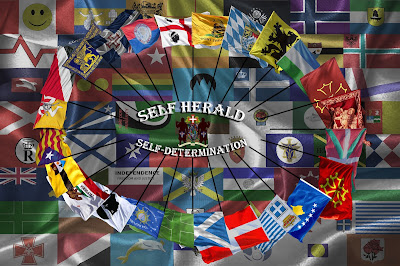
Prince
Renato II of Pontinha is fighting for the Independence of his own country, the
Principality of Pontinha. The government of Portugal, quit the island to him without
respecting his right of property, a right recognised by Human Rights. The
sovereignty of the Principality of Pontinha is based on a document ‘’Carta
Regia’’. This document shows, that the property and sovereignty of the Islet of
Sao José was sold by the King of Portugal. So, in legal terms, Pontinha is a
State, even not being recognised by UN countries.
Renato II
is a modern Prince and he uses the Social networks to announce the news related
with his own state, the Principality of Pontinha. During the last week, he
posted the following: the Foreign Office of the Principality is issuing the
respective passports to the diplomatic members of the Principality if they wish
the passport was to contact the services at the time of the expedition or by
electronic mail with reference to the respective identification number of the
Principality.
So, Pontinha
is acting as what it is, a real state. Renato II is taking the example of
Seborga, Liberland or Sealand, States which have not been recognised by UN
countries, called as micronations. So, from this moment, the Principality of
Pontinha issues diplomatic passports.
The issue
of passaports it is not the only measure of the Principality of Pontinha.
Renato II has also some other projects for his country. He is looking for diplomats, and ministers who can help the Principality to obtain recognition from the Republic of Portugal and from other states.
So if you have time and you want to participate in the history of this tiny country, now you have a great opportunity to work for this country and to obtain the nationality.












